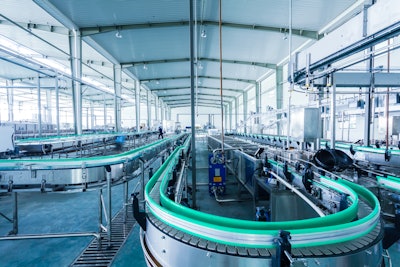
Industry as a whole is utilizing technologies and solutions enabled through the industrial internet of things (IIoT). Gartner predicts that 25 billion devices will be connected to the internet of things by 2020, with some agencies predicting even double this amount. This presents plant managers with a conundrum.
Most food manufacturing and processing plants currently have motors powering essential equipment such as mixers, conveyors and packaging machines. These motors are just motors and do not play in the same league as the other intelligent devices in their factories. With years of service often left in the motors, it’s difficult for plant managers to justify replacing motors that work effectively for the sake of an upgrade with any smart features. However, there are alternatives to a complete overhaul in order to connect motors to the IIoT.
Instead of investing in new, more intelligent or smart equipment, plant managers should invest in sensors that provide similar functionality to connected devices. For example, ABB offers smart sensors that can be fitted to almost any standard low voltage induction motor. By using sensors that feed performance data to the cloud through a smartphone or gateway solution to a secure server, plant managers can bring their motors up to date with the IIoT.
This data gives plant managers a full picture — even on mobile devices — of how their motors are working, without having to carry out dangerous hands-on monitoring. Plant managers can then carry out condition-based or predictive maintenance, rather than periodic maintenance.
Using the right method to monitor motor conditions can enable plant managers to reduce unplanned downtime by up to 70 percent. This is particularly important in the food and beverage industry, where even a short downtime can be extremely costly. Infrastructure failures in this industry cost up to $75,000 per hour and have a serious impact on seasonally produced items such as sugar. This is a cost that plant managers can avoid by using the right performance insight and awareness.
An increased awareness of the condition of any motor also leads to a better awareness of how an entire system is performing. For example, a motor overheating or burning out may indicate a problem elsewhere in the production line, such as a line moving too fast and producing waste. Eliminating this problem could improve energy efficiency by up to 10 percent.
Motors, the heart of the food and beverage plant, don’t have to be left behind in the age of the IIoT. Just like a home security camera being connected to your mobile phone, a smart sensor could give a motor a new lease of life, making it perform as an integral part of the data-rich factory and providing all the additional benefits that this creates.






















